Maximum Security, transferred away from trainer Jason Servis after he was indicted in March on federal charges related to the alleged use of performance-enhancing drugs, had his first gallop for new trainer Bob Baffert April 29 at Santa Anita Park.
Monthly Archives: April 2020
New York Gov. Cuomo: Saratoga Race Meet in Question
The New York governor raised doubts April 29 that Saratoga Race Course will be able to offer racing in front of fans this summer as the state seeks to avoid the reopening of “attractive nuisance” facilities that might attract large numbers of people.
Coolmore Announces 2020 Australia Stallion Fees
Yes Yes Yes, the first Everest winner to retire to stud after three years of the rich slot race, has had his service fee set by Coolmore where he will stand in a 16-stallion roster featuring sought after international bloodlines.
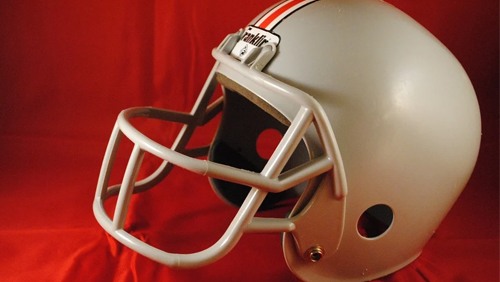
NFL Offensive Rookie of the Year odds roundup
Odds courtesy of OddsShark.com
Sometimes, NFL trends just can’t be explained. For example, there was a stretch where the NFC won the Super Bowl coin toss a ridiculous 14 years in a row. That ended before Super Bowl XLVI when the New England Patriots won it – although the New York Giants pulled off the upset in the game.
There’s a similarly odd winning streak ongoing when it comes to the NFL Offensive Rookie of the Year Award – the official OROY is given out by voters from the Associated Press. In 2006, Tennessee Titans quarterback Vince Young won OROY. No player has won it from an AFC team since. Last year, Arizona Cardinals quarterback Kyler Murray was the 13th straight winner from the NFC.
Murray was the reigning Heisman Trophy winner and was the No. 1 overall pick in the 2019 draft. LSU quarterback Joe Burrow is the reigning Heisman Trophy winner and was the No. 1 overall pick this year by the Cincinnati Bengals, and he’s the +260 favorite to end the NFC’s streak. No Bengals quarterback has won the award, with the last Cincinnati player to do so being receiver Carl Pickens in 1992. No wideout has won OROY since the New York Giants’ Odell Beckham Jr. in 2014.
Magic Millions Battles Inglis for Online Market Share
Magic Millions has launched an internet auction platform and will go head-to-head with the rival Inglis Digital business in a bid to capture a share of the rapidly growing and lucrative online Thoroughbred trading market.
Secretariat Slight Favorite in Virtual Kentucky Derby
Secretariat, considered by many as the most talented and iconic Thoroughbred to have raced in America, has been established as the 7-2 morning-line favorite for the virtual Kentucky Derby that will be televised May 2 on NBC.
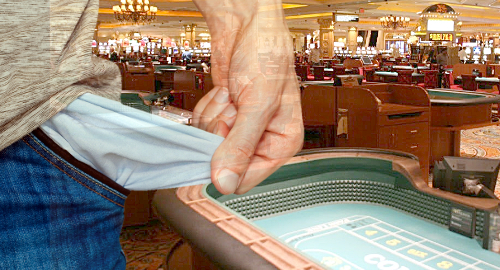
Nevada casino gaming revenue tumbles by two-fifths in March
Nevada casino gaming revenue tumbled in March after the governor ordered the closure of non-essential businesses to limit further spread of the COVID-19 pandemic.
Figures released Wednesday by the Nevada Gaming Control Board show statewide gaming revenue of $618.1m, a 39.6% decline from the same month last year and a slightly larger decline from February 2020’s result. For the fiscal year-to-date, revenue is down 2.2% to $8.75b.
Predictably, the decline was most evident on the Las Vegas Strip, where casinos reported revenue falling 45.7% to just under $300m, while Downtown Vegas dipped only 26% to $43.4m.
March slots revenue fell 30.6% to $468.7m, while the ‘table, counter & card games’ category took a harder hit, falling 57% to $149.4m. Blackjack won the table crown despite revenue falling 59.2% to $44.2m, barely edging out baccarat ($43m, -19.7%). Craps ($14.4m, -58.6%), roulette ($13.5m, -67.6%) and poker ($6.5m, -39.4%) rounded out the table top-five.
Dr Post Displayed His Toughness at an Early Age
When Dr Post gamely out muscled the competition to win the 1 1/16-mile Unbridled Stakes at Gulfstream Park on April 25 by 1 1/2 lengths and possibly put himself in the 3-year-old classic picture, it did not surprise Jay Goodwin.
Irish Champions Weekend Rebounds After Loss of QIPCO
The line-up of race sponsors at Irish Champions Weekend is expected to remain unscathed after the loss of QIPCO, whch ended its backing of the Irish Champion Stakes (G1) at the two-day extravaganza in September.

Lithuania’s gamblers seek out online slots during pandemic
Lithuania’s online gambling growth wasn’t enough to offset retail declines in the first quarter of 2020 as the COVID-19 pandemic took a bite out of the market’s gaming revenue.
Figures released this week by Lithuania’s Gaming Control Authority (GCA) show gaming revenue falling 2.8% year-on-year to €25.9m in the first three months of 2020, despite turnover rising nearly 14% to €296.5m.
Online gambling’s share of revenue improved to 45.5% following the closure of retail operations in mid-March in response to the coronavirus. Retail revenue slipped 23.3% to €14.1m as the mass suspension of live sports pushed retail betting down by one-third to just €1.8m. Land-based slots (€9m) and table games (€3.4m) reported slightly less severe double-digit declines.
The market’s seven online gambling licensees accounted for the bulk (68%) of Q1’s gambling turnover, which pushed revenue up 39% to €11.8m. Slots accounted for €5.5m of this take, nearly doubling year-on-year, while online sports revenue rose 14.6% to €6m and table games contributed the rest.
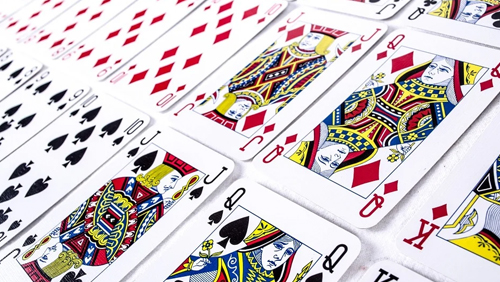
Poker video blogs: Joey Ingram’s enthralling investigations
We live in a world where poker content is not just commonplace, it’s everywhere. A thousand videos of momentous occasions from poker history live on YouTube ready for you to watch at the click of a button. Subscription-based exclusive content is available at PokerGO. Each poker brand has their own channel of videos, while myriad videos appear every week thanks to bloggers such as Andrew Neeme, Johnnie Vibes or Brad Owen to name just three.
Yet, surrounded by so much content, in a sea of similarity, it’s possible to stand out and carve a new niche, something that the subject of this week’s look at Poker video Blogs has achieved with unparalleled success.
Joey Ingram, also known as ‘Papi’ or ‘Chicago Joey’ has been making poker videos and putting them out there on YouTube for so long that he has become synonymous with the genre. Not only that, but he has become the award-winning focus for much of the poker world. From elite pros to recreational players and fanboys, Joey Ingram has become the touchstone for many poker fans interpretations of the latest industry events, from tournament titles to controversial court cases.
Let’s look at just a few of the numbers when it comes to Chicago Joey.

How Invisible Money Button lets Bitcoin apps do the work for users
This is a guest contribution by Patrick Thompson, Writer at CoinGeek.com. One of the sticking points of implementing Bitcoin into iGaming operations has been the hassle involved with integration. Money Button has figured out a solution, and we’re closer to a more seamless reality. This article first appeared on CoinGeek.com.
Money Button has optimized the Bitcoin ecosystem once again, this time around, Money Button has released a feature that makes Bitcoin integration seamless: Invisible Money Button.
With Invisible Money Button, Bitcoin app users no longer have to swipe their Money Button on websites to execute actions. Instead, paying to execute actions on Bitcoin apps can be customized to the app-creators liking. This means that Bitcoin payments can now take several shapes and forms and is no longer limited to swiping a Money Button.
What is Invisible Money Button?

SBC Digital Summit: The path forward for lotteries
The third day of the SBC Digital Summit turned to lotteries, and the unique challenges they have to face as a result of the COVID-19 pandemic. With many operators having to close up retail locations, and others beholden to their government partners, lotteries are facing a whole bunch of unique problems apart from the rest of the gambling industry.
The day began with a speech from the President of the Global Lottery Monitoring System (GLMS), Ludovico Calvi. He emphasized the five points of priority for the GLMS during the criss: Employee’s wellbeing, effective communication, business continuity, effective cost management, and fiscal and financial assistance, in that order.
He also offered a few predictions on what kinds of gaming companies will find success once this crisis is over. Of course, companies that emphasize safety for both customer and employee will do better than those who don’t, and those which were already financially on solid footing have a better chance of surving. But from there, companies that manage to be more agile, can push digital platforms more successfully, and apply better cross functional cooperation will likely do much better than those that cannot.
Calvi continued to emphasize that point in the first panel of the day, “How Lotteries are adapting to the outbreak”, moderated by Harmen Brenninkmeijer, CEO of Quanta, with fellow panelists Sami Kauhanen, VP of Betting, Veikkaus, and Arno de Jong, CMO of Nederlandse Loterij. He noted that companies which continue to keep their retail and digital strategies separate will have a hard time with the new normal.
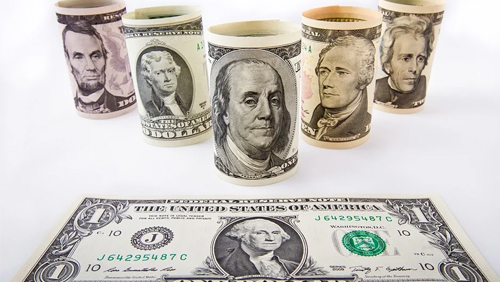
Poker on Screen: Smart Money (1931)
“Now listen sister, I’m a gambler. It’s my business to read people.”
This week’s look at Poker on Screen sticks to the game and nothing but as the 80-minute movie masterpiece Smart Money comes under the microscope.
Amazingly for the time it was made – almost equidistant between World Wars in 1931 – the film features the only time Edward G. Robinson (as Nick ‘The Barber’ Venizelos) and James Cagney (as Jack) made a movie together, despite both being signed to Warner Brothers studios throughout the decade. Maybe it was a way of getting more films out of them to separate them and conquer the silver screen. Possibly they didn’t find the right project with two such strong roles. Either way, it’s a shame, because they are superb together sharing the same frame.
Smart Money was billed to many as a gangster movie, shot as it was after Robinson’s popular movie Little Caesar had reached the cinemas and coming shortly before Public Enemy, the film that made Cagney’s name was released. Smart Money was, as a consequence, buried a little in the years that followed and today sits as more of a quirky footnote than the signature production it should be. No matter. The years have not dulled the gilt and the action is still golden to this day in a way so many other poker movies have failed to be.
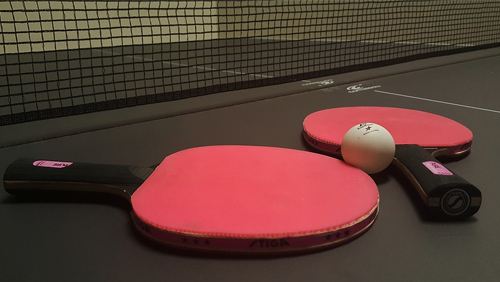
SBC Digital Summit: Keeping sports honest during COVID-19
With so little live sports in the world to bet on, whatever there is left has become hugely popular. Who would have thought in February that Table Tennis and Belarussian football would be carrying sports books right now? But as we all praise these heroes of the sports betting industry, the adults in the “room” at the SBC Digital Summit came to discuss how easy it could be to fix those matches.
The “Implications for Sporting Integrity” panel, moderated by Lee Richardson, CEO of Gaming Economics, featured discussion of just how dangerous these offerings might be for sports books. The panel featured Gilles Maillet, Director of Sport Integrity for La Française des Jeux (FDJ), Rupert Bolingbroke, Head of Trading for the Hong Kong Jockey Club (HKJC), Andrew Ashenden, Chief Commercial Officer for Stats Perform, and Matt Fowler, Director of Integrity for International Betting Integrity Association (IBIA).
Ashenden noted immediately that, because these leagues and matches feature much lower paid athletes, “there’s a great proportion of at risk matches at the moment.” Bolingbroke added that, when compared to major league games, fixers can fix matches much more cheaply now.
Maillet worries that the industry might already be behind the ball with this. As the industry sought business continuity, it flocked to these lower level leagues to find any action at all. But at the same time, criminal organizations have business continuity too, and they’ve likely already looked into match fixing these games. For that reason specifically, the FDJ has decided not to offer wagering on Nicaraguan football. Bolingbroke also noted that the HKJC has decided to only offer wagering on its own horse racing, not willing to take a risk on lower league matches.

Virtual sports have arrived at the perfect time
At the beginning of the COVID-19 pandemic, it felt like the whole industry was waiting and wondering if esports would finally jump into the spotlight, and become the betting product the sports betting industry always has hoped it would be. But one of the most surprising takeaways I’ve had from the SBC Digital Summit has been the sudden rise of virtual sports as a prominent betting product,
As I’ve thought about it, it makes so much sense. Virtual sports can emulate all of our favorite sports, it doesn’t necessarily have to be tied to a schedule, and it needs minimal explanation to the betting public. But as most of the industry still waits on live sports to resume, I’m wondering if there might be something to virtual sports that operations should seek to expand, and make a much bigger betting product out of it long term.
The origins of virtual sports
To better understand virtuals, I googled up the origins of sportsbetting, which took me to virtualsportsbetting.com. These games have been around since atleast the early 1970s with Derby Day, the Sega developed arcade machine that would reward players for betting on one of three horses.
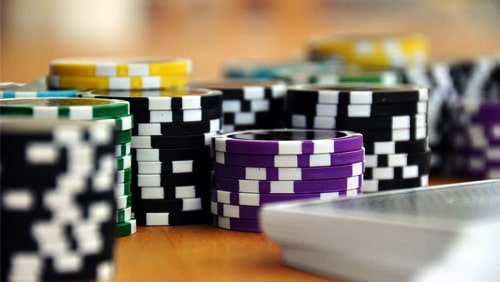
Poker in Print: Check-Raising the Devil (2009)
While there are many poker books out there that focus on the strategy of the game and self-improvement as a poker ambition, there are just as many that delve into the private lives of the professional poker players we love and hate.
Probably falling between those two stalls is Mike ‘the Mouth’ Matusow, who has become the typical poker player we love to hate over the past decade. It’s fitting, then, that it was 11 years ago that Matusow released his autobiography, which remains one of the most entertaining reads in the canon of poker literature.
It goes without saying that if you’re looking for a book that improves you as a player or even a person, this might not be the go-to manual to achieve such self-improvements. However, if you want the life-story of a character who might be as cautionary as he is caustic, then Matusow is your man.
In 2009’s Check-Raising the Devil, Matusow delves into his past and plucks out as many of his formative moments that he can remember. Thanks to a mixed upbringing, that’s a list of memories that can sometimes feel a little jumbled, but it does nothing to derail the flow of entertainment and if you enjoy a good story that will make you wince as equally as smile, this is a good book to get your poker teeth into.

Murray and Nadal serve up spectacle as Virtual Madrid Open reaches quarter-finals
A clash between Andy Murray and Rafael Nadal on clay was mouthwatering for tennis fans around the world. After all, the last time the two men met on the clay was way back in 2016, in their last professional match to date. Murray won on that occasion, taking the Madrid Open semi-final 7-5, 6-4.
In an odd twist of fate, this was the two friends’ next meeting, on the virtual clay of the Madrid Open. This time, however, the rules were different. The winner would be the first to three single games, as long as that victory was by two games. End up level at 3-3 and it would be atie-break to decide the winner.
That method was exactly how Nadal limped into this meeting, but for Andy Murray, the route was much easier, a convincing 3-1 victory over Benoit Paire making him a 4/7 favourite when taking on Nadal. We said yesterday that the price was huge for Murray and should be taken up and we’re happy to report that we weren’t wrong.
In what was a ludicrously one-sided affair, Nadal’s method of getting a return from anywhere wasn’t good enough, Murray’s groundstrokes pinning his opponent to the corners and leading to some friendly banter between the two men.
Melco might be in trouble as it unloads Crown stake at a huge discount
Melco Resorts and Entertainment has been considered one of the premier gaming companies in the Asian region since before gaming was a household word. However, it might be learning that there’s no such thing as “too big to fail.” This week has seen a lot of activity at the company, and most of it hasn’t been positive. From executives suddenly leaving to a fire sale of the company’s stake in Crown Resorts, it would appear that Melco might be suffering more than most from the coronavirus pandemic.
Crown presented a filing (in pdf) with the Australian Securities Exchange today, explaining that The Blackstone Group, a U.S.-based asset management firm, had picked up 67,675,000 Crown shares at $5.31 each. That works out to about US$360.5 million, and it was also revealed that the shares were previously owned by Melco. The purchase took all of Melco’s stake in the company and saw Melco take a huge loss, as it had purchased the stake less than a year ago for around $8.50 per share. Melco had intended on purchasing 19.9% of Crown, but backed down this past February because of the coronavirus. The fact that Melco is under investigation for its connections to Crown didn’t help.
The casino operator is reportedly also facing a number of changes at the executive level. GGRAsia indicates that it got its hands on a letter sent to Melco employees that indicates that several executives have decided to jump ship amid the COVID-19 outbreak. Whereas some companies have seen the top brass take pay reductions to stem revenue losses, this apparently wasn’t an option for these individuals. Melco chairman and CEO Lawrence Ho penned the letter to the employees, but stayed mum on the reasons for the “voluntary departure.”
Ho will also skip his salary for the rest of the year in order to stop the financial bleeding, and those executives who decided to stick around will also take reductions in their pay. Despite Macau having greenlighted casinos to reopen, Ho explained in his letter that casino traffic remained “virtually zero,” forcing the company to take drastic measures.
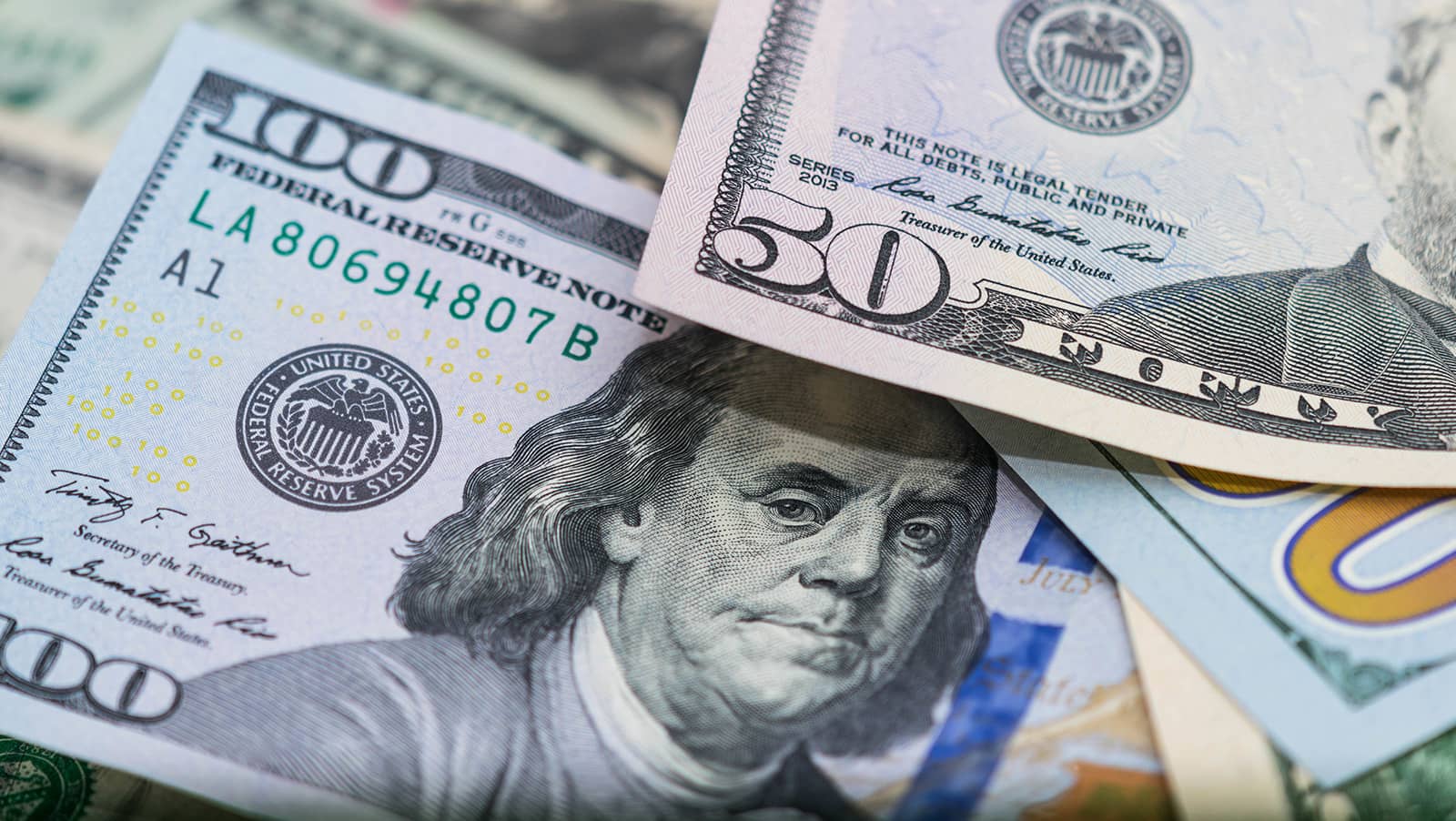
Judge orders Imperial Pacific to pay millions to Pacific Rim
The hits just keep on coming for embattled casino developer and operator Imperial Pacific International (IPI). The company simply can’t seem to get its act together and play by the rules, which has already cost it millions of dollars in fines and brought it a lot of negative attention. However, it doesn’t seem to appear that IPI minds being the center of controversy since it continues to explore new ways to have regulators or the law take another swipe at it. In the latest of a long, constantly growing list of controversies surround its operational integrity and ethics, IPI is now going to have to break out the wallet again to make good on an outstanding debt. The District Court for the Northern Mariana Islands has ordered the company to pay a former contract, Pacific Rim Land Development LLC, $5.6 million.
Pacific Rim has been heavily involved in the construction of IPI’s Imperial Palace casino in Saipan, a project that has been the center of multiple investigations and lawsuits for the past couple of years. The company presented its bill for services to IPI, but the latter balked, refusing to pay the bill. In hindsight, given IPI’s history, Pacific Rim should have seen it coming – its employer doesn’t have the best track record when it comes to working responsibly.
Left with no alternative, Pacific Rim went after IPI in court. It sued to recuperate the lost funds and, true to form, IPI tried to get the suit dismissed. It argued, “Pacific Rim fraudulently obtained from IPI a promissory note, which is therefore unenforceable” and asked the judge to toss the case.
IPI justified its request and its accusations of fraud by asserting that the cost of Pacific Rim’s work, which had been completed on time in September 2018, was inflated. However, given IPI’s history, it would not be surprising to learn that it simply wanted to find a way to avoid having to pay its bills. It didn’t work, though, as the courts threw out the request to dismiss and told IPI to pay up.